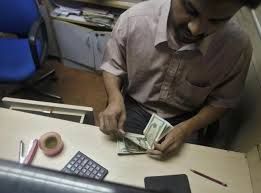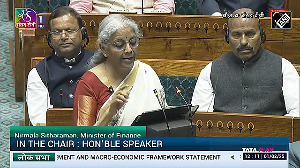 Bankers say the Reserve Bank of India should take steps to boost liquidity in addition to delivering a widely expected interest rate cut next week if it hopes to see lower lending rates and a pick-up in credit growth.
Bankers say the Reserve Bank of India should take steps to boost liquidity in addition to delivering a widely expected interest rate cut next week if it hopes to see lower lending rates and a pick-up in credit growth.
Lenders' failure to fully pass on the RBI's two interest rate cuts this year has been a major frustration for policy makers.
Commercial banks blame the central bank's tight grip on liquidity for keeping the cost of funds high, a claim Governor Raghuram Rajan dismissed as "nonsense" at the April policy review.
Rajan has maintained that there's sufficient cash and has publicly ruled out major moves like a cut to lenders' mandated cash reserve requirement (CRR) .
Traders and bankers said they were now lobbying for more modest but still potentially effective measures, including easing a daily requirement that currently forces banks to hold at least 95 per cent of the current 4 per cent CRR with the central bank.
That could be brought down to 85-90 per cent, and help spur credit growth. In the latest fiscal year, lending growth slowed to its weakest in almost two decades.
"Transmission of lower rates is severely hampered in a monetary system where banks always start the day short of funds," said Ananth Narayan, regional head of financial markets, South Asia, Standard Chartered Bank.
"This is not about asking for a back-door rate cut: this is about providing liquidity to the banking system at the current operative interest rate."
But an outright cut in the headline CRR is not expected at least until June 2016, a Reuters poll on Wednesday showed.
The same poll indicated the RBI is likely to cut the repo rate by 25 basis points to 7.25 per cent at its policy meeting on Tuesday, which would mark the third easing this year.
SMALLER STEPS
Bankers who have approached the RBI say officials have been receptive to technical tweaks, rather than to a CRR shift.
Traders say the need for more, albeit smaller measures, was underlined after recent volatility in the overnight cash rate that has been blamed on a cash shortage.
The RBI governor has said the overnight rate needs to "hug" the repo rate.
This month the weighted average call rate - or the interbank overnight lending rate - swung away from the policy rate of 7.50 per cent in 18 out of the last 19 sessions.
India's daily liquidity deficit, estimated by traders, currently stands at around one trillion rupees ($15.6 billion). Bankers say they want the RBI to bring down that deficit, currently roughly one per cent of deposits, to 0.5 per cent, as the monetary cycle eases.
That could be done by not sterilising the rupee liquidity infused into the banking system when the RBI intervenes in the foreign exchange market to buy dollars and sell rupees.
The central bank could also increase the amount of funds that banks can borrow from it via term repos.
Currently set at 0.75 of their total deposits, bankers say the RBI could increase the amount to 1 per cent. "Even if he (Rajan) does not cut rates but provides liquidity, there will be transmission," said a senior treasury official with a foreign bank.










 © 2025
© 2025